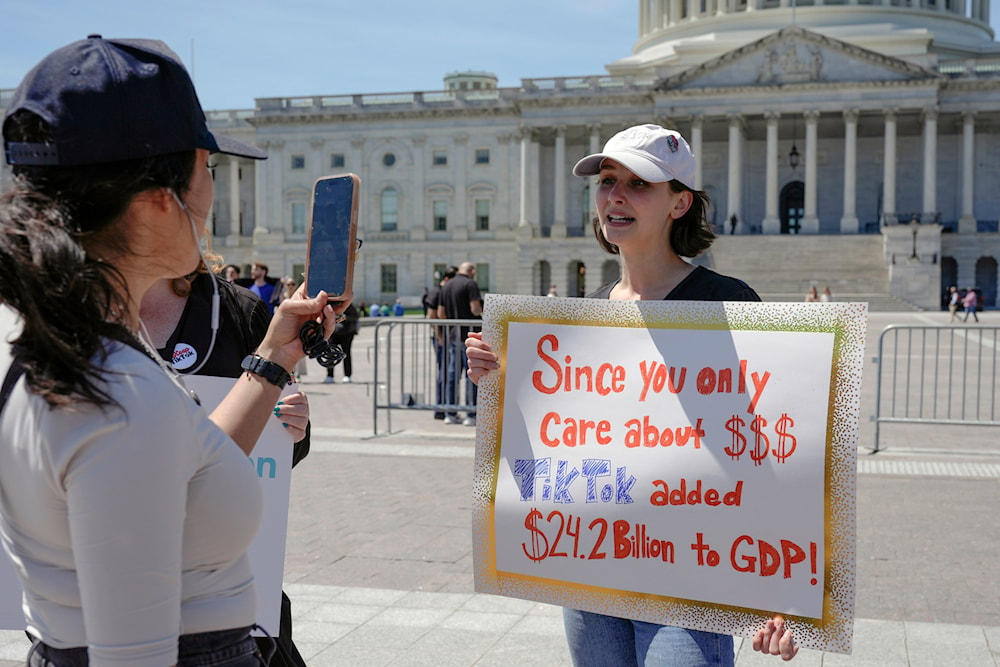Senate passes bill banning TikTok if parent company does not sell it
The bill banning TikTok now makes its way to US President Joe Biden's desk for the final decision.
-

A TikTok content creator speaks to reporters outside the US Capitol, in Washington on April 23, 2024. (AP)
On Tuesday, the Senate voted to pass a bill that will either ban TikTok or force a sale of the app, giving its China-based parent company ByteDance up to one year to divest its crown jewel before being banned from US app stores.
The bill passed in the House on Saturday with 79 senators voting in favor and 18 against, by a margin of 360 to 58, as part of a foreign aid package for Ukraine, Taiwan, and "Israel." It is now up to US President Joe Biden to make the final decision, noting that he previously said he would sign the legislation.
What does the new law entail?
According to the new law, ByteDance has one year to sell TikTok to a US-based company, or the app will be banned in the United States. However, TikTok's head of public policy for the Americans, Michael Beckerman, clarified that the company would fight the legislation in court. That said, if the federal law goes into effect without being blocked, Apple's App Store and Google's Play Store would be required to stop offering the app for download.
“At the stage that the bill is signed, we will move to the courts for a legal challenge,” Beckerman wrote in the memo, first reported by tech news website The Information. Beckerman claimed that the bill violated the First Amendment, which protects freedom of speech.
“We’ll continue to fight, as this legislation is a clear violation of the first amendment rights of the 170 million Americans on TikTok,” he wrote.
Why is the US banning TikTok?
Republican Montana Sen. Josh Hawley asked the Biden administration on November 8 last year to ban TikTok because of its content about the war on Gaza, which he claims favors pro-Palestinian voices.
The request was sent to Treasury Secretary Janet Yellen, chair of the Committee on Foreign Investment in the United States (CFIUS) with the authority to block foreign involvement in corporations and markets on certain national security grounds.
In it, Hawley wrote that the war is a “crucial test case” for the app's influence as a media organization and source of news as he expressed concern about what he referred to as “the ubiquity of anti-Israel content.”
Could it be to ensure that the 2024 US elections are not influenced?
From another perspective, during a House of Representatives intelligence committee hearing on March 13, Avril Haines, the US' director of national intelligence, claimed that China might leverage the social media app to impact the 2024 US elections.
In response to a question from Democratic Representative Raja Krishnamoorthi regarding whether China's ruling Communist Party (CCP) would use TikTok to influence the elections, Haines stated, "We cannot dismiss the possibility that the CCP would utilize it."
Lawmakers expressed concerns that the Chinese government could access user data or influence what content the users see, adding that they could be trying to "exacerbate political divisions within the United States".

 3 Min Read
3 Min Read








